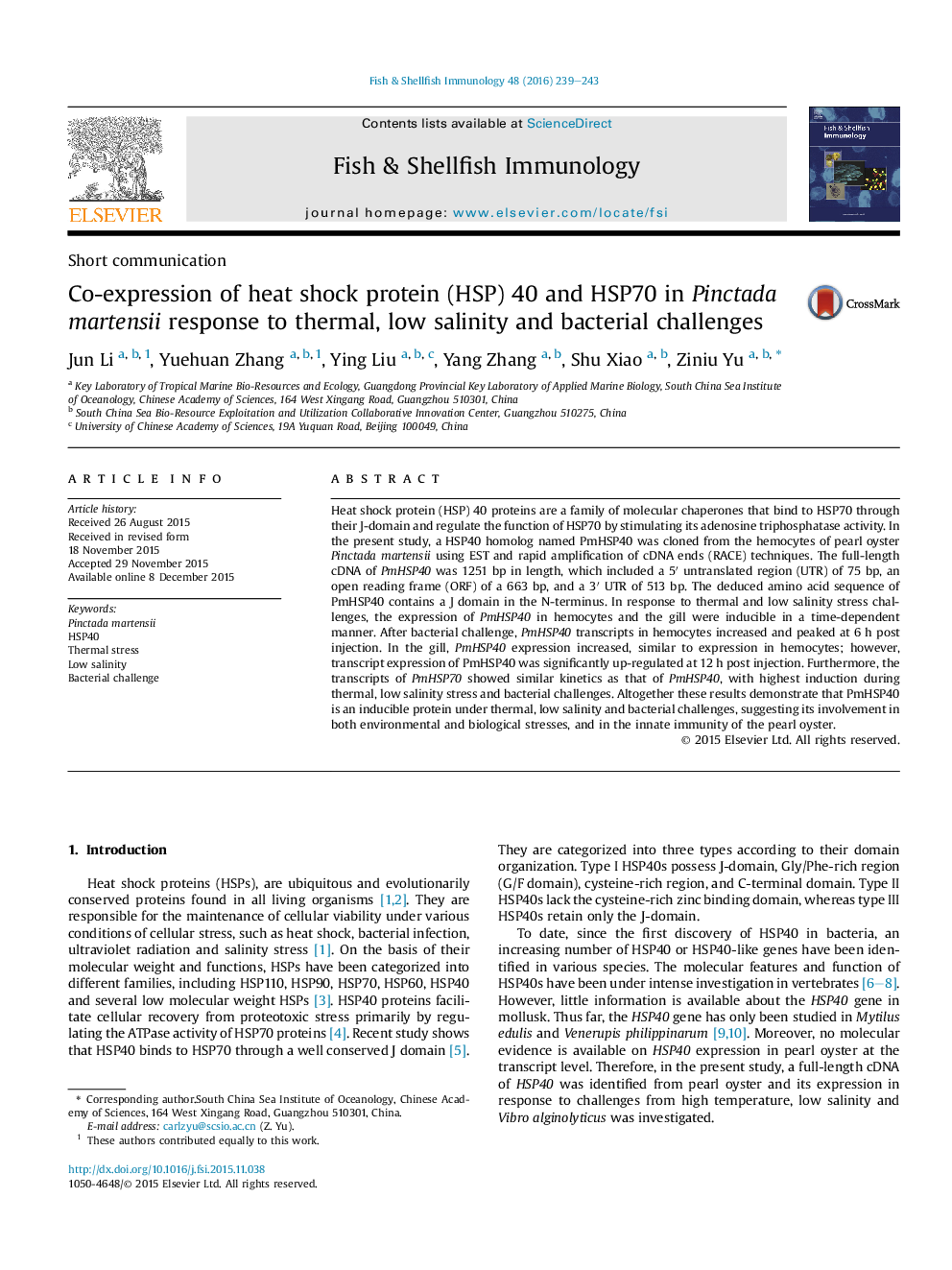| Article ID | Journal | Published Year | Pages | File Type |
|---|---|---|---|---|
| 2430912 | Fish & Shellfish Immunology | 2016 | 5 Pages |
•A novel-cloned HSP40 gene was identified.•The expression of the PmHSP40 was significantly up-regulated under thermal, low salinity, and bacterial challenge.•PmHSP70 was co-expression with PmHSP40 in response to thermal, low salinity and bacterial challenges.
Heat shock protein (HSP) 40 proteins are a family of molecular chaperones that bind to HSP70 through their J-domain and regulate the function of HSP70 by stimulating its adenosine triphosphatase activity. In the present study, a HSP40 homolog named PmHSP40 was cloned from the hemocytes of pearl oyster Pinctada martensii using EST and rapid amplification of cDNA ends (RACE) techniques. The full-length cDNA of PmHSP40 was 1251 bp in length, which included a 5′ untranslated region (UTR) of 75 bp, an open reading frame (ORF) of a 663 bp, and a 3′ UTR of 513 bp. The deduced amino acid sequence of PmHSP40 contains a J domain in the N-terminus. In response to thermal and low salinity stress challenges, the expression of PmHSP40 in hemocytes and the gill were inducible in a time-dependent manner. After bacterial challenge, PmHSP40 transcripts in hemocytes increased and peaked at 6 h post injection. In the gill, PmHSP40 expression increased, similar to expression in hemocytes; however, transcript expression of PmHSP40 was significantly up-regulated at 12 h post injection. Furthermore, the transcripts of PmHSP70 showed similar kinetics as that of PmHSP40, with highest induction during thermal, low salinity stress and bacterial challenges. Altogether these results demonstrate that PmHSP40 is an inducible protein under thermal, low salinity and bacterial challenges, suggesting its involvement in both environmental and biological stresses, and in the innate immunity of the pearl oyster.
